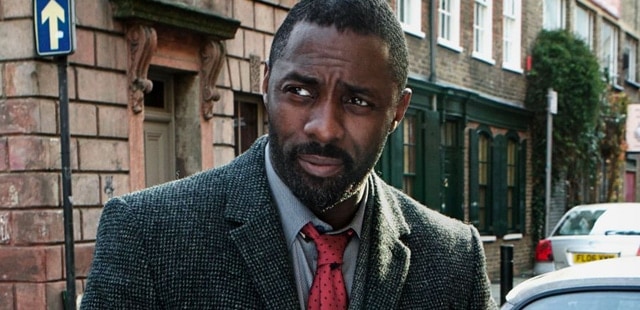
This seems like it’ll be miles away from the familiar ’90s Disney version.
The notoriously handsome British actor Idris Elba will be playing radically against type for his latest project, a modern adaptation of “The Hunchback of Notre Dame“ for Netflix. According to The Hollywood Reporter, Elba will star as the title character, Quasimodo, and he’s also slated to direct and produce the feature-length effort, as well as create original music for the film, which is being billed rather vaguely as a “sonic and musical experience.”
“The Hunchback of Notre Dame” is a 19th-century novel by French author Victor Hugo set in late medieval Paris and centered on the hunch-backed bell ringer Quasimodo and his love for the dancer Esmeralda. It’s likely most familiar to audiences as its 1996 animated Disney incarnation, which retained the same broad plot but notably excised the bleaker, more brutal parts of Hugo’s text — the original ending, which sees Esmeralda ultimately hanged and Quasimodo’s bones embracing hers in the grave, is replaced by a more kid-friendly treatment in which the good guys get to live.
Elba himself is no stranger to Disney remakes, as he recently voiced the scheming, villainous tiger Shere Khan in the studio’s live-action/CGI version of their animated classic The Jungle Book. But Elba’s adaptation of “The Hunchback of Notre Dame” might be an opportunity for modern viewers to experience the Gothic grotesqueness and sexuality of Hugo’s original, rather than Disney’s more sanitized take on the story. While the inclusion of original music is one thing that this project seems to have in common with the 1996 film, the contemporary setting sets this adaptation apart — and raises a whole new set of questions.
For starters, Quasimodo’s status as an outcast and “monster” due to his hunchback is a pivotal element of the original, so it’s curious to see if Elba will try to portray that prejudice in a more insidious and timely way here. The concept of translating pitchfork-wielding medieval townspeople into a sensitive representation of modern-day ableism would definitely be an original move, if incredibly difficult to pull off — so kudos to Elba if he’s indeed aiming to take this adaptation into the realm of modern-day social commentary.
Furthermore, characters like Esmeralda and the evil archdeacon Frollo also pose a challenge to modern adaptation. In Hugo’s novel, Esmerelda is a French Roma girl who “constantly attracts men with her seductive dances” and is 16 years old (yikes!). She’s later sentenced to die on charges of witchcraft as well as murder, which is the kind of conflict that seems par for the course for a woman in the 15th century, but not for one living in the 21st.
If done well, a modern-day reimagining of her character could provide a timely portrait of a generous yet fiercely self-possessed woman’s mistreatment at the hands of a bigoted justice system (especially given the fact that representations of Romani people on screen are often stereotypical and/or whitewashed). The same goes for Frollo, whose fire-and-brimstone religious fundamentalism and hypocritical lust still feels like a relevant kind of villainy.
How faithfully or seriously Elba intends to adapt his source material is unclear. For all we know, he could be going for a more lighthearted, romcom-style take on physical deformity in the vein of a film like Penelope, which starred Christina Ricci as a wealthy young woman born with a pig’s nose and ears. Or perhaps he’s angling to make another swooning, epic romantic drama along the lines of his most recent starring role in The Mountain Between Us (which co-starred Kate Winslet and was also based on a novel).
If anything, we can be certain that the circumstances of a modern-day adaptation will prompt Elba to take at least some liberties with Hugo’s text. But audiences shouldn’t expect just a Disney-style bowdlerization either. Elba’s significant degree of creative control over this project suggests that he has a specific vision in mind. Given that the last Netflix production he helped produce and star in was Cary Fukunaga’s harrowing war drama Beasts of No Nation, this film might end up being the darker, grittier, and sexier version of The Hunchback of Notre Dame we never knew we needed.
Related Topics: Idris Elba, The Hunchback of Notre Dame

